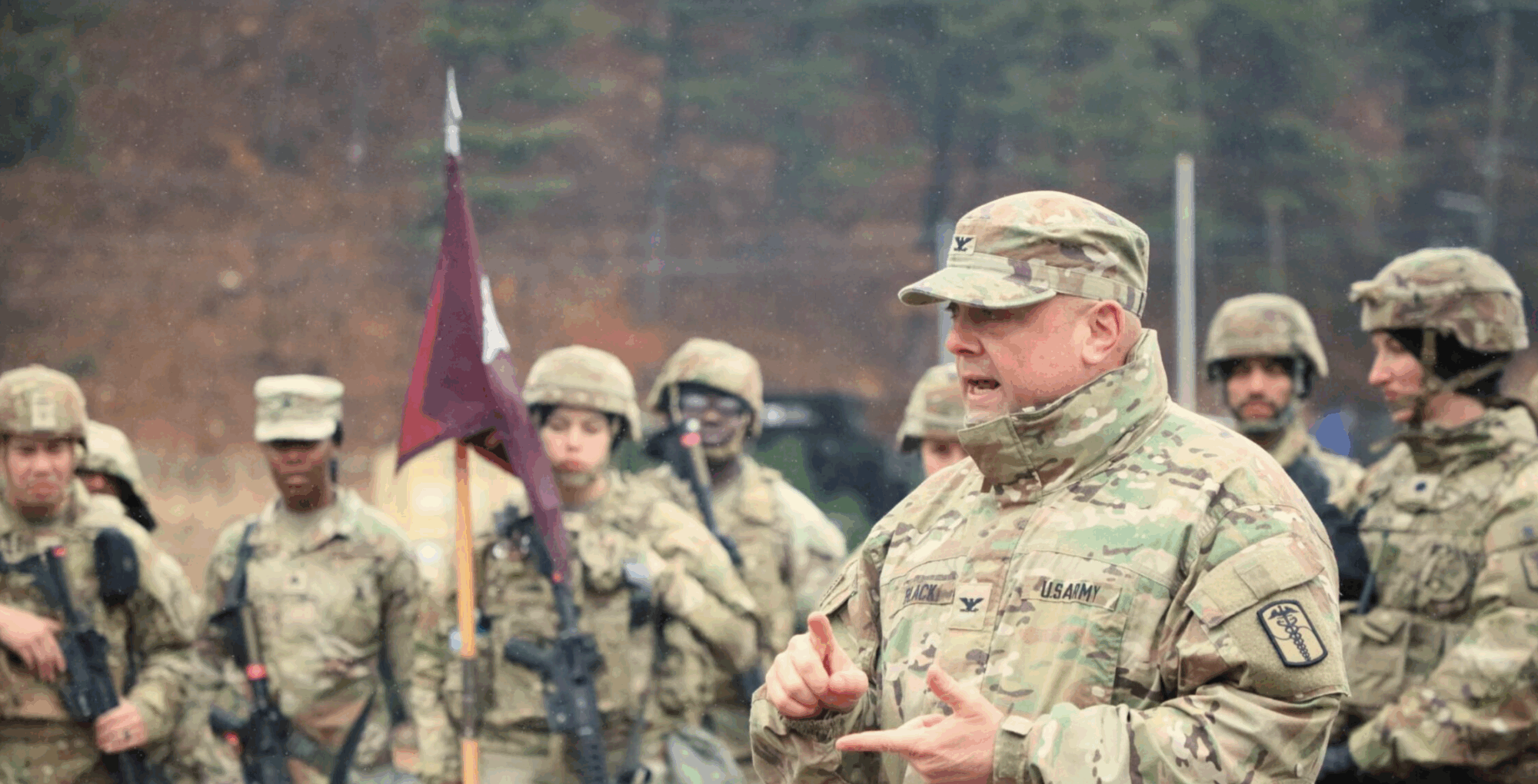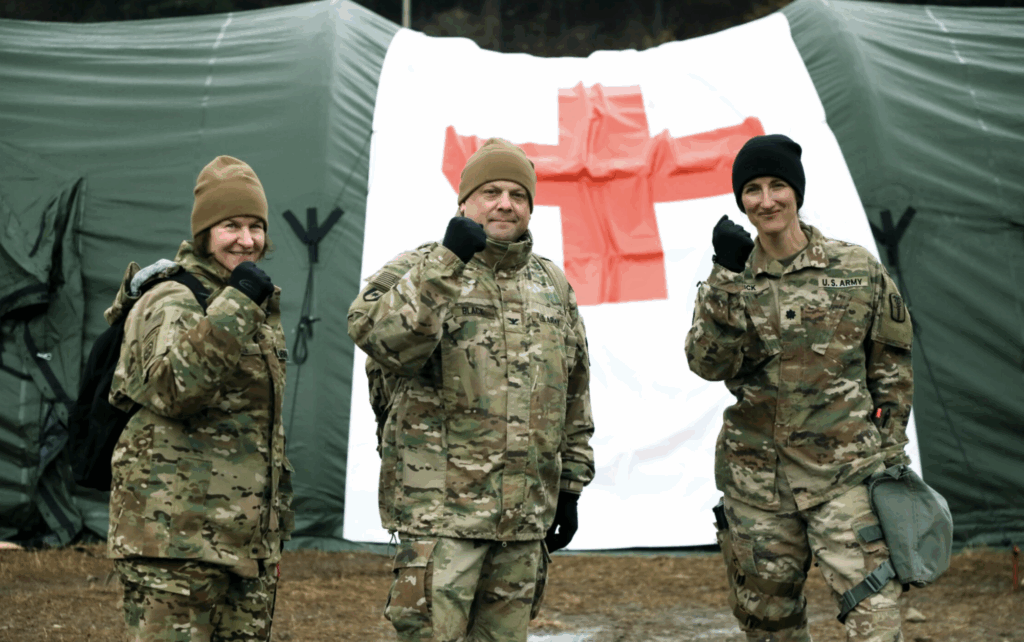
BS microbiology ’98, DVM ’04, PhD comparative and experimental medicine ’10
As a veterinary student working on summer research projects in the microbiology labs of UT College of Veterinary Medicine professors Stephen Kania and David Bemis, Black knew he wanted a career as a dual DVM-PhD in medical research and product development. The US Army offered him a path to further his training following vet school, and as an Army microbiologist, he has worked on malaria prevention and antimicrobial drug development.
“What surprised me about an Army career were the leadership opportunities and the way my microbiology training was useful in deployed military environments,” Black says. He has deployed and led soldiers on medical missions throughout Europe, Africa, and Asia.
Now stationed at the largest overseas US Department of Defense installation in the world, Camp Humphreys in Pyeongtaek, Republic of Korea, Black is the first Veterinary Corps officer to command an operational hospital unit like the 549th Hospital Center. He wears three hats in his current role:
- Director for the Brian D. Allgood Army Community Hospital and its ten additional health and dental clinics distributed across the Korean peninsula at small US Army installations.
- Commander for the 549th Hospital Center (the Army’s modern version of field hospitals depicted in the 1970s-era television show M.A.S.H.), the only Army hospital with the dual mission of day-to-day patient care and the go-to-war mission.
- Commander for Medical Department Activity-Korea.

Ultimately, Black is responsible for about 1,600 soldiers and civilians who provide health and dental care to 30,000 patients. He says the tension in his job is ensuring enough daily access to health and medical care in the brick-and-mortar hospital and clinics while training for a potential transition to hostilities if the armistice between South and North Korea ends. “My units must be able to move and set up operational health care on short notice. To be ready, we train field hospital operations under wartime scenarios annually.”
The Comparative and Experimental Medicine graduate program is focused on the comparative approach to the study of biomedical and veterinary sciences.
Explore More on
Great Grads
MORE FROM THIS ISSUE

















